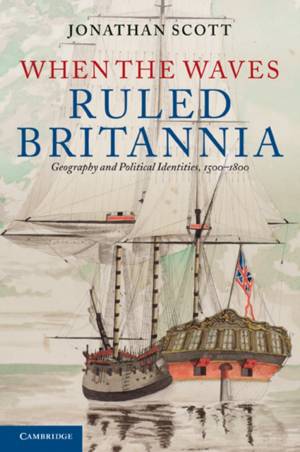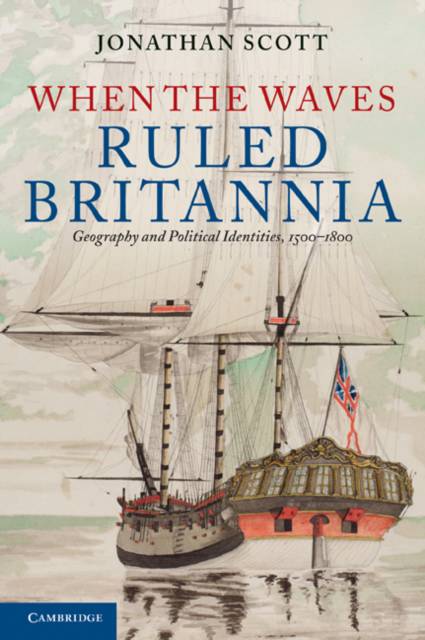
- Afhalen na 1 uur in een winkel met voorraad
- Gratis thuislevering in België vanaf € 30
- Ruim aanbod met 7 miljoen producten
- Afhalen na 1 uur in een winkel met voorraad
- Gratis thuislevering in België vanaf € 30
- Ruim aanbod met 7 miljoen producten
When the Waves Ruled Britannia
Geography and Political Identities, 1500–1800
Jonathan Scott
Paperback | Engels
€ 60,95
+ 121 punten
Omschrijving
How did a rural and agrarian English society transform itself into a mercantile and maritime state? What role was played by war and the need for military security? How did geographical ideas inform the construction of English - and then British - political identities? Focusing upon the deployment of geographical imagery and arguments for political purposes, Jonathan Scott's ambitious and interdisciplinary study traces the development of the idea of Britain as an island nation, state and then empire from 1500 to 1800, through literature, philosophy, history, geography and travel writing. One argument advanced in the process concerns the maritime origins, nature and consequences of the English revolution. This is the first general study to examine changing geographical languages in early modern British politics, in an imperial, European and global context. Offering a new perspective on the nature of early modern Britain, it will be essential reading for students and scholars of the period.
Specificaties
Betrokkenen
- Auteur(s):
- Uitgeverij:
Inhoud
- Aantal bladzijden:
- 236
- Taal:
- Engels
Eigenschappen
- Productcode (EAN):
- 9780521152419
- Verschijningsdatum:
- 24/02/2011
- Uitvoering:
- Paperback
- Formaat:
- Trade paperback (VS)
- Afmetingen:
- 150 mm x 226 mm
- Gewicht:
- 399 g

Alleen bij Standaard Boekhandel
+ 121 punten op je klantenkaart van Standaard Boekhandel
Beoordelingen
We publiceren alleen reviews die voldoen aan de voorwaarden voor reviews. Bekijk onze voorwaarden voor reviews.







